Asthma (Asthma bronchial, bronchial asthma), together with COPD, forms the so-called obstructive pulmonary diseases. Asthma is a chronic pneumonia for which an estimated 641,000 people visited a general practitioner or specialist in 2017. At a young age the diagnosis is difficult to make and often children grow out of it as well. Chronic inflammation narrows the airways, which can cause shortness of breath, wheezing and coughing. Even at times when you do not have an attack, the airways are still inflamed. Influenza and colds can exacerbate the symptoms, as well as certain stimuli. These stimuli and the reactions to them can differ per person, per season and even per day.

Asthma
Treatments
- All treatments
- Prescription medicines
- Non-prescription medicines
- Relevance
- Name A-Z
- Name Z-A
- Price low-high
- Price high-low
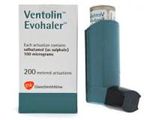








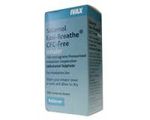
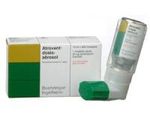


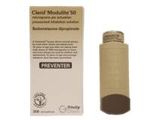
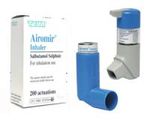

How does Dokteronline work?
At Dokteronline, you can get expert advice from doctors quickly, without the hassle of visiting your GP’s surgery. Take care of your health with reliable treatments and information from the comfort of your home.
Select your preferred treatment
The doctor will review your medical request
The pharmacy will ensure your medication is delivered to your doorstep
What is asthma?
Asthma is a chronic inflammation of the respiratory tract, in which the respiratory tract is narrowed, and becomes more irritable. Asthma patients often suffer from tightness of the chest or wheezing, they cough a lot, and as a result of this condition they often suffer from fatigue. The stimuli that cause the complaints vary per person, per season and even per day. They can be divided into allergic stimuli and non-allergic stimuli, and the resulting complaints occur in short or long-lasting attacks.
What are the causes of asthma?
Science has not yet figured out exactly what causes asthma. However, it is clear that heredity plays a major role. If both parents have asthma or an allergy, the child has a 70% chance of contracting asthma. This percentage is reduced to 50% if only one of the parents has an allergy or asthma.
The environment can also play a role in the development of asthma (and allergies) at a later age. For example, after frequent exposure to certain substances, an allergy may develop. However, the hereditary factor is also very important here. The predisposition for this has to be present from birth.
What forms of asthma are there?
Asthma is divided into four forms, some of which may overlap. The various forms of asthma are briefly described below:
- Allergic asthma: this is one of the most common forms of asthma. This form of asthma makes you allergic to certain substances and stifles you when you breathe in these substances. These substances are called stimuli. Allergic stimuli include house dust mite droppings, tree pollen, grasses and weeds, hairy animal dander, fungi, certain foods (such as crustaceans and nuts) and occupational allergens (e.g. for painters, hairdressers, bakers and pepper growers). When you breathe in these substances, your body produces histamine, which evokes the allergic reaction.
- Non-allergic asthma: this may stifle you if you breathe certain substances, but it does not cause an allergic reaction. Known non-allergic stimuli include viral respiratory tract infections, changes in temperature or humidity, tobacco smoke, perfumes, sprays, skin care products, detergents, sharp odours (such as baking and painting air) and air pollution (such as fine dust).
- Exercise-induced asthma: this is what happens when you are stifled when you do exercise. For this type of asthma, a medicine may be prescribed in an inhaler, which you take before you start exercising, in order to reduce your symptoms. People with exercise-induced asthma benefit from starting an activity quietly. Then their lungs can get used to the transition from rest to effort. Stress and emotions (both positive and negative) can aggravate the symptoms. This also applies to temperature changes and humidity. For people with exercise-induced asthma, cold and dry air exacerbates the situation.
- Severe asthma: this is seen as a separate form of asthma. Fortunately, there are not many people with severe asthma. This type of asthma is difficult to control with medication and therefore probably causes a lot of complaints, which means that you also have to go to hospital regularly for treatment.
How do you recognise asthma?
There are some clearly recognisable symptoms of asthma. However, it does not always have to be asthma, because these symptoms can also indicate other conditions. Below we will discuss the most common ones:
- Shortness of breath: with an asthma attack, you may have the frightening feeling of suffocation. This is because your lungs are overflowing with air, and they cannot change this properly. Basically, it is not dangerous. In the event of an asthma attack, sit upright and clear your airway by opening up obstacles such as a tie or top buttons on a shirt.
- Wheezing breath is also a very clear symptom: this occurs because your windpipe and bronchi are narrowed and the surrounding muscles cramped. Or wheezing breath if your nose or throat is 'closed' during the day.
- Shortness of breath: if you are quickly out of breath and gasping for air, is often a symptom that can indicate asthma. After all, a lack of energy is an obvious consequence of asthma. Your night's sleep is poor, during the day you have difficulty breathing, and that exhausts you.
Asthma is often confused with COPD. However, these two conditions are very different in important respects:
- Where asthma clearly has a hereditary factor, COPD is often a result of smoking.
- Asthma occurs in attacks, COPD is chronically present.
- Asthma occurs at all ages, COPD occurs after the age of 40.
- The course of asthma is predominantly favourable and can be kept under control with maintenance medication. COPD is chronic and gradually worsens.
- Life expectancy for asthmatics is normal, for COPD it is reduced.
- Lung function is normal in asthmatic patients with optimal treatment, and reduced in COPD patients even with optimal treatment.
Is there anything I can do myself about asthma?
You can adjust your lifestyle to make asthma attacks a lot less frequent and less severe. You can make sure that you live and eat healthily, maintain a healthy body weight and build up a good condition. It also helps to avoid the stimuli you are sensitive to and to take measures against certain allergens. In addition, be careful with the use of the medication you are prescribed.
What are the forms of treatment?
The doctor's treatment plan will first discuss a non-medical policy. This concerns lifestyle changes that may enable the symptoms to be better controlled. There are clear links between endurance and obesity and the extent to which asthma can be better controlled.
In addition, the doctor will prescribe medication, depending on the frequency of the complaints. In the case of less frequent asthma attacks, a short-acting β2-sympathicomimeticum such as salbutamol or terbutaline will be advised as needed, but if it becomes more than 3 times a week, the physician will switch to inhaled corticosteroid, such as Beclomethasone, budesonide, ciclesonide or fluticason, or, in the case of persistent local side effects, to montelukast. An inhaled corticosteroid can be combined with a long-acting β2-sympathicomimetium, such as formoterol or salmeterol, if the result is still unsatisfactory. If the asthma is still not under control with these steps after 3 months, there is often a referral to second-line care. In that case, there is talk of 'asthma that is difficult to treat'.
Medication
In the case of less frequent asthma complaints (twice a week or less):
- The use of a short-acting β2-sympathicomimeticum (such as salbutamol) is recommended as required.
In case of more frequent complaints (3 times a week and more often) and more:
- Frequent use of the short-acting β2-sympathicomimetic
- A maintenance treatment with an inhalation corticosteroid (ICS) is recommended.
If insufficient asthma control is achieved:
- A long-acting β2-sympathicomimetic can be added.
Alternative treatments
Several alternative treatments are possible. These are never a substitute for regular treatment, but can do an excellent job as a complementary treatment. Always keep your doctor informed if you are considering alternative treatments.
- There are homeopathic remedies available that can achieve excellent results with your immune system. You can buy these products yourself, but you can also ask for advice from a homeopathic practitioner.
- Acupuncture, a centuries-old oriental treatment method, can achieve good results. The acupuncturist tries to rebalance your disturbed energy flows with small, thin needles.
- Breathing therapy is always a very good complementary treatment. Physiotherapists and speech therapists often offer this, not only for asthmatics, but also for other conditions. Good breathing at rest and during exercise is always a good aim.
- Anthroposophical treatments can be very broad. It can consist of movement therapy, dietary advice, medication and massage.
- Naturopathy and phytotherapeutic treatments make use of centuries-old herbal knowledge, combined with modern scientific research. We use herbs, massages and adapted food. If stress and emotions can cause attacks, then yoga is a very good alternative support. You will learn how to balance your body and mind and how to breathe well, which will help you cope with stressful moments and emotions.
Lifestyle changes
Your lifestyle has a major impact on the extent to which you suffer from the symptoms associated with asthma. As you know, asthma is a chronic condition, but there are ways to make your life as pleasant as possible.
The following lifestyle changes are the most effective:
- Make sure that people around you know that you have asthma. They can then take this into account and you can grow understanding with them, if you avoid certain activities and environments.
- If you smoke, then quitting smoking is actually a no-brainer. In addition, it is of course very wise not to hang around in an environment where lots of people are smoking, actually every cigarette in your vicinity is one too many, avoid passive smoking.
- If you have tested positive for allergens, avoiding these allergic stimuli is very important to prevent attacks. If you have non-allergic asthma, this is particularly true for environments with high levels of car traffic, and certain weather conditions where there is a higher risk of smog. There are often special icons in the various weather apps to indicate the risk level for asthma patients.
- If you have allergic asthma, measures against dust mites can provide good results.
- Ensure that you are in good shape. If your condition and endurance improve, your attacks will also be less intense.
- Finally, your BMI is also important. Obesity is associated with poorer asthma control, reduced response to corticosteroids and reduced airway diameter, even after correction of lung volume.
References
Dutch Care Institute (z.j.) Astma, consulted on 26 April 2019, at https://www.farmacotherapeutischkompas.nl/bladeren/indicatieteksten/astma
Longfonds (s.a.), Asthma, consulted on 26 April 2019, at https://www.longfonds.nl/astma
Medworq (s.a.), Asthma & COPD, consulted on 26 April 2019, at https://www.astma-copd.nl/astma/
RIVM (2019) consulted on 1 May 2019, Asthma / figures & context / current situation, at https://www.volksgezondheidenzorg.info/onderwerp/astma/cijfers-context/huidige-situatie